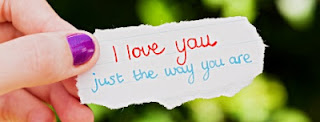My
name is Lydia Esenam Adzimah. My mother, Patience Adzimah is from Anfoega-Dzana
and my Dad, Moses Adzimah is from Wusuta; not very far from Anfoega-Dzana
(About 10-15 minutes drive). This makes me 100% ewe (which am very proud of). I
have three (3) brothers (those who know me already know). All my brothers (Godwin,
Worlanyo and Devine) were born in Anfoega-Dzana. I was the only born in
Accra. My parents made sure to bring us
up to be very respectful kids and never forgot virtues. They made sure we
always spoke our language because they made us understand that if we didn’t speak
it will go a long way to be a disgrace to them and not us. They tell us if
elders spoke ewe with us and we weren’t able to answer, it will mean that they
(our parents) didn’t teach us.
They made us understand that there was no where
we could learn to speak ewe but home and English and the others could be learnt
in school and other places because those were where we interacted a lot with
people from other tribes. This was how they managed to help us separate
“knowledge” acquired from school, and one acquired from home. I must admit,
there were numerous times where I wanted to and even tried to have my own way
by speaking English at home and anytime I did, I was answered in ewe.
Growing
up, I have come into contact with people who are either 100% ewes like myself
or have got parents who are half ewes. (Thus either the mother or the father)
In all cases some can speak the language while others cannot and I ask myself
who is to blame. Is it the kids or the parents? Is it that the parents didn’t
find it important to speak their own language with their children? Or is it
because they failed to eat “akple” and “fetridetsi” well enough? Lol. (My mum’s
favorite).
Most
of my friends are ewes either on one side or both sides but sadly, they seem so
lost in the ewe language every time they are spoken to. Though I wish they
could speak the language at their ages, I always encourage them to make
conscious effort to learn since it is never too late.

Most
of my friends (especially the 100% once) have expressed regret and remorse, for
their inability to learn the language when they had the chance to. I have
always known that kids when growing up are fast learners and I’m sure if they
were being spoken to at the early stage of their lives, they would be “expects”
by now. It is said that, “a new day brings new opportunity”. So you still can
learn now and speak with your kids when they grow. Don’t let your children go
through what you are going through now; the regrets of not being able to speak
your own mother tongue.
We
have a lot of different people from different tribes living here in Accra, and
other capitals around the globe. I am sure they all have behind their minds
that someday we all will go back to wherever we might have come from- A place
we call “the village”, a place we call “home”.
Some
people are even shy to be identified as ewes. They resort to the culture of
“brof)lization” of their hometowns and even their names. Seriously, some people
sound terrible and horrible trying to do that.
If you don’t know the correct
pronunciations, ask and you will be corrected. Some have said to me I speak
very good English to be an ewe (I wonder who ever said ewes don’t speak good
English).
Aseye,
Selorm, Mawuli, Esenam, Dziedzorm, Worlanyo, etc. Once you hear such names, you
know outright from which tribe the individual hails. This is usually followed by the question; “which
part of the Volta region do you come from?” Those as me will proudly answer.
But others will shamefully say; I don’t know L
(sad). No matter what your response is, the next question will be weather they
could speak the language. Regrettably, some will answer “NO” (And you can’t
always blame them because it’s not their fault). Others (like me) will say
“YES” because we grew up speaking it. I have some friends who are not ewes but
I admire their effort in trying to speak or learn the language. They do it with
all seriousness.
My
parents have been very particular with the ewe language because they always tell
us; “Ewe is the root of your identity”. My mum will always encourage her
customers and people she came into contact with who can’t speak the language to
do so. As much as they (my parents) will encourage us to speak the ewe language
they also always made sure we spoke good English. I must say am thankful to them for this. It
has gone a long way to boost my confidence. I read ewe in church as much as I
read English almost every other Sunday church service, and people are always
proud of me.
I cannot
use myself as the yard stick but I know that each and every one of us who fall
short in speaking the language can put the bits and pieces together to help
ourselves to correct these wrongs in the next generation. By making the
conscious effort with all the seriousness it deserves, I am sure we will NOT
repeat the mistakes of our parents who didn’t encourage us or thought us to
speak the ewe language.
I
love you all
Let’s
help one another.
Akpe
na mi kataa.
















